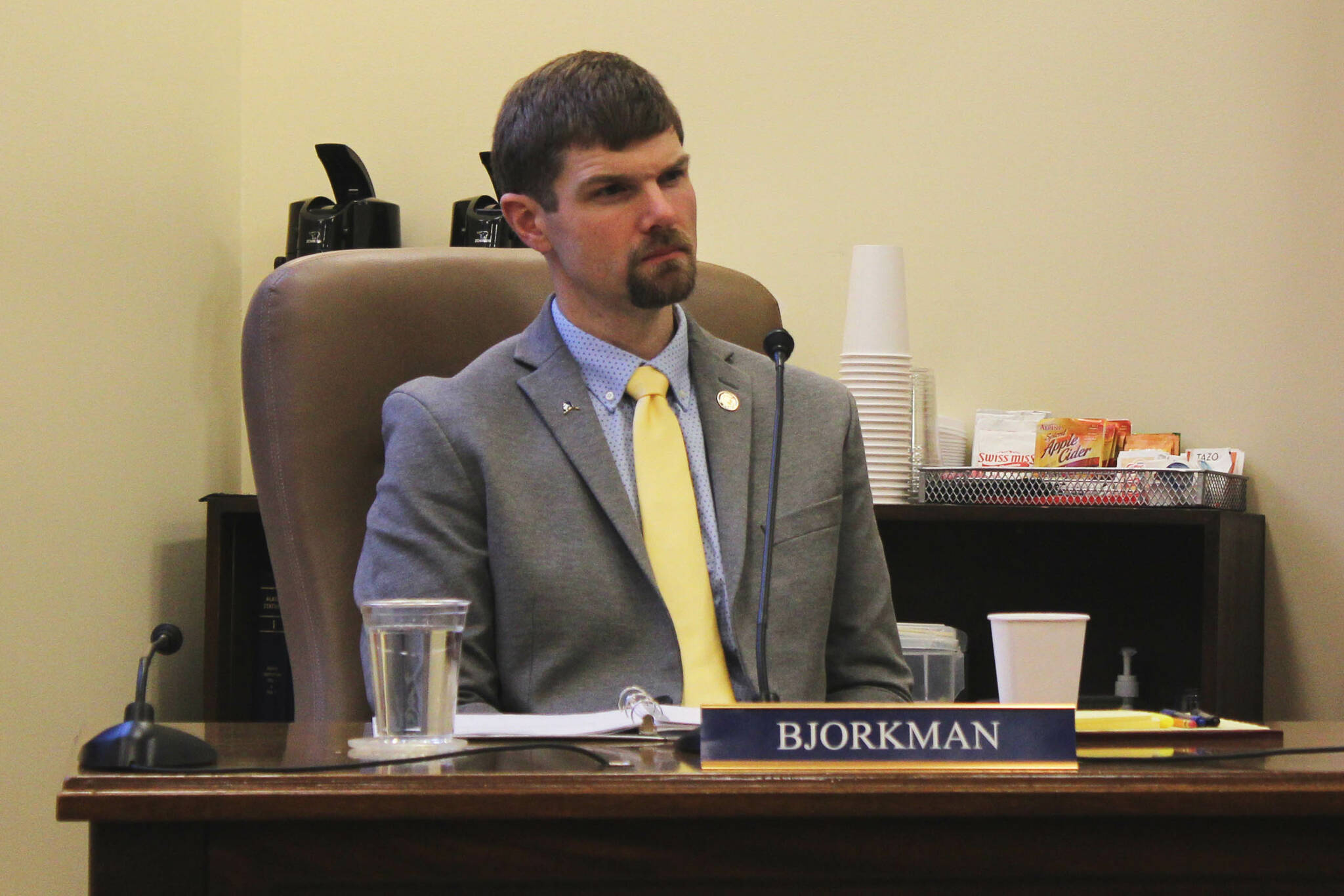A bill sponsored by Nikiski Republican Sen. Jesse Bjorkman would require the state to financially compensate Alaska hunters for game wrongfully seized by the Department of Fish and Game, to include bison, caribou, deer, elk, goat, moose, mountain sheep, Dall sheep and musk ox.
It’s not often that the state seizes game from a hunter but then must pay them back if a court decides the animal was a legal kill. Col. Bernard Chastain, director of the Alaska Wildlife Troopers, testified at the Senate Resources Committee on Wednesday that, of the roughly 150 animals the department takes each year, an average of between one and two are determined to be wrongfully seized.
In those cases, Chastain said compensation provided by the Department of Fish and Game isn’t always an animal. Once game is surrendered to or taken by the department, Chastain said it is usually immediately donated to a charitable organization so that the meat doesn’t spoil. The original meat seized, therefore, is not always available to give back to the hunter anyway.
“In the case where a court determines that the animal is returned to the defendant, we work with the defendant to try to figure out what they’d like,” Chastain said. “In most situations, the next available like animal is given to them in good condition. But sometimes the defendant or the hunter does not want that and so we have also worked with them to try to figure out what it is that they do want.”
The bill got a mostly warm reception from members of the Senate Resources Committee, although multiple lawmakers drew attention to the bill’s ambiguous price tag.
The bill says the amount of money the state will pay hunters will be determined by multiplying the weight in pounds of the seized animal by the per-pound price of beef in the region where the game was taken.
An analysis of price tag prepared by the state says it’s difficult for the Department of Fish and Game to know how much money the bill would cost the state if it passes because the price of meat varies based on the store location and the cut. Most game in Alaska, the analysis goes on, is taken in rural locations off the road system, where it may not be clear what the price of beef is in the region.
In bringing the legislation forward, Bjorkman, a hunter, said he is seeking to ensure hunters are justly compensated when the state takes their source of food. He said that while he’s thankful for the instances where the department compensates a hunter with an animal similar to what was seized, the exchange is not always one-to-one.
“Too many times, hunters have to wait for long periods of time to receive an animal or they will receive or are offered an animal that just is not a good fit for the animal that was taken from them,” Bjorkman said.
Ted Spraker, the former chair of the Alaska Board of Game, told committee members he supports the bill as an accountability measure for the department. He described an instance where troopers kept a seized moose in a walk-in freezer while a hunter’s appeal was adjudicated. After the court came down in the hunter’s favor, the hunter decided she didn’t want the moose back because it had been freezer burned.
“I know that doesn’t happen very often, but when it does happen, it’s really devastating,” Spraker said.
Sen. Bill Wielechowski, an Anchorage Democrat, said he’s heard similar stories, such as an instance where a hunter’s moose was confiscated but the Alaska Supreme Court determined that the animal had been a legal kill.
“Here they are over a year later and Fish and Wildlife is saying, ‘We don’t have it, we don’t have the meat and we can’t replace it,’” he said. “You’re talking 600, 800 pounds of food here and this is someone who lives a fairly subsistence lifestyle, so it’s a huge loss.”
Lawmakers opted to take up the bill later, with plans to revisit its cost estimate and language regarding wrongful seizure.
This reporting from the State Capitol was made possible by the Alaska Center for Excellence in Journalism’s Legislative Reporter Exchange. Alaska news outlets, please contact Erin Thompson at editor@peninsulaclarion.com to republish this story.

